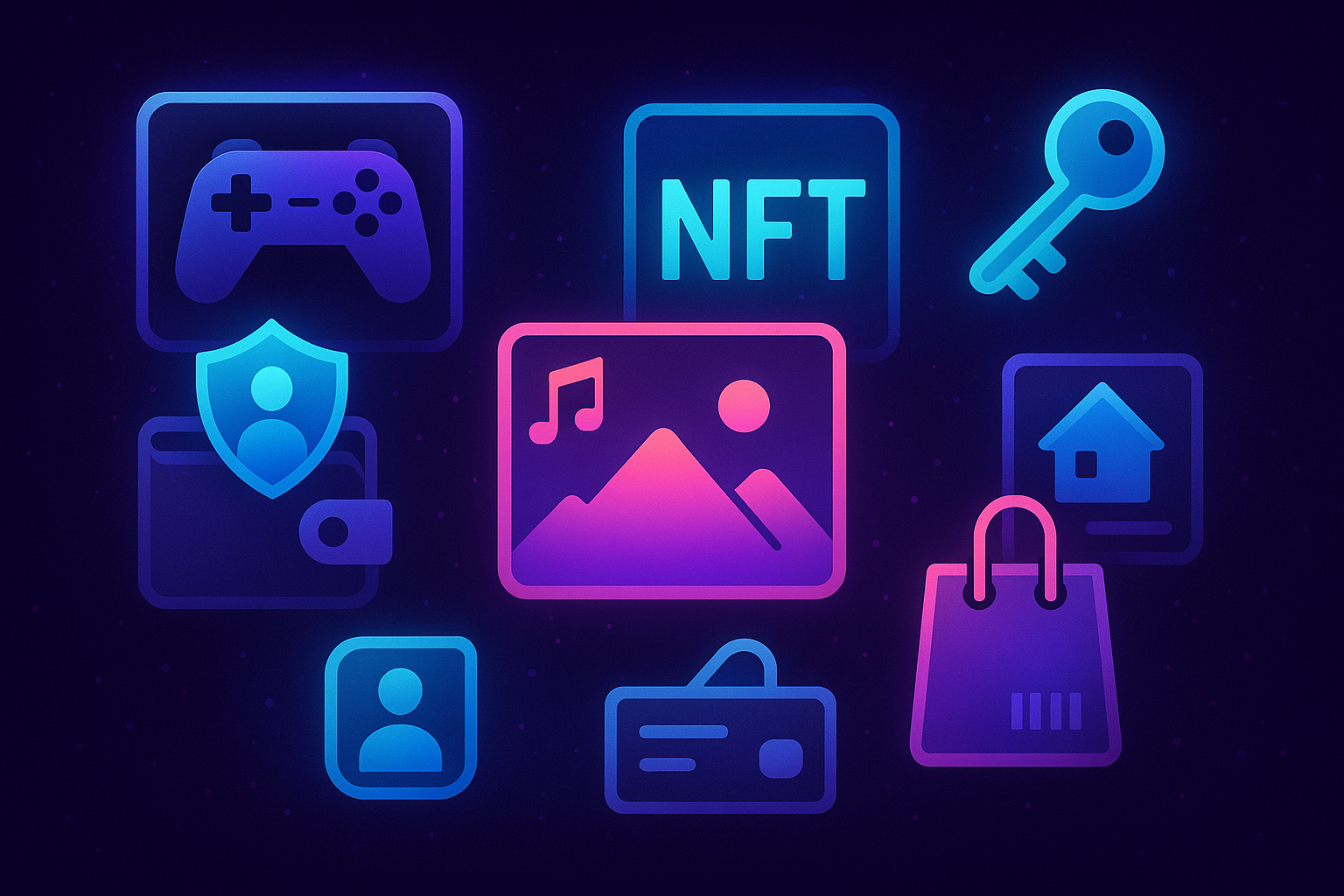Introducing our new AI-powered NFT creator
Creating NFTs has never been easier and fun!

NFT Use Cases in 2025: More Than Just Digital Art

Gregory Marcilhacy
April 11, 2025
NFT Use Cases in 2025: More Than Just Digital Art
NFTs are no longer just about profile pictures and hype drops. In 2025, they’re powering real use cases across industries — from gaming and memberships to real estate and education.
If you still think NFTs are just overpriced JPEGs, this post is for you. Let’s explore how NFTs are being used in the real world today.
🎮 1. Gaming Assets and Skins
NFTs are now a core part of the gaming economy. Players can own in-game items — skins, weapons, characters — as NFTs, allowing them to trade, sell, or carry assets between games.
Platforms like Immutable, Ronin, and Base are powering games where ownership and resale rights are baked in. NFTs give players more control and developers new monetization models.
👥 2. Memberships and Exclusive Access
NFTs are replacing traditional membership cards and subscriptions.
From exclusive Discord communities to real-world clubs and events, owning an NFT can grant you access to gated experiences — both online and offline. Think of it like a digital backstage pass or a premium club card, with benefits that can evolve over time.
Projects like LinksDAO and PROOF Collective are leading the way.
🧑🎨 3. Artist Royalties and Digital Collectibles
Still one of the most common use cases — NFTs continue to empower artists to sell their work, build communities, and receive automated royalties whenever their work is resold.
New platforms in 2025 make it easier than ever to launch collections, airdrop bonuses to loyal collectors, and even unlock bonus content over time (like behind-the-scenes footage or limited editions).
🏡 4. Tokenized Real-World Assets
Yes, NFTs are even being used for real estate.
You can tokenize physical assets — like property ownership or car titles — and trade them as NFTs. While regulation is still evolving, startups are already offering fractional ownership in property through blockchain-based tokens.
Imagine owning a slice of a vacation villa through an NFT. That’s where we’re heading.
🪪 5. Digital Identity and Reputation
In Web3, your wallet becomes your résumé.
NFTs now represent credentials, achievements, and reputation — from on-chain course completions to contribution badges in DAOs (Decentralized Autonomous Organizations).
For example, you might hold:
- A “Contributor” badge from a community you helped moderate
- A certificate from an online course you completed
- A POAP (Proof of Attendance Protocol) token for attending a major event
These NFTs are non-transferable and build your digital identity over time.
🎵 6. Music and Creative Rights
Artists are minting albums, singles, and even backstage passes as NFTs — allowing fans to buy limited-edition copies of music and directly support the creators.
In 2025, music NFTs go beyond ownership — they unlock access to private shows, unreleased tracks, and profit-sharing models.
Some artists even give holders access to royalties — meaning if the song goes viral, early supporters benefit too.
🛍️ 7. Redeemables and Product Drops
NFTs can be tied to real-world products. Think limited-edition sneakers, merch, or physical art that you can claim by holding an NFT.
Major brands are using this to verify authenticity and reduce scalping — and to reward loyal fans with early access to new collections.
🧠 Final Thoughts
In 2025, NFTs are finally stepping into their potential.
They're more than collectibles — they’re powering new economies of ownership, access, and creativity. Whether you’re an artist, gamer, builder, or just curious — there’s likely an NFT use case that fits your world.
Want to create your own? Try it out:
Browse other posts